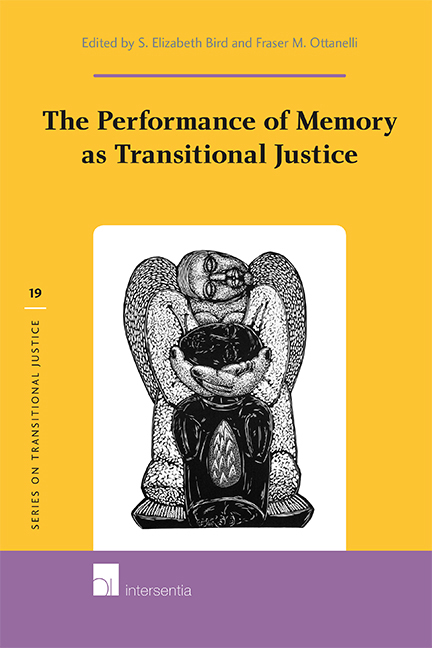Chapter 7 - The Role of Direct-Experience People in Promoting Transitional Justice: The Israeli Case
Published online by Cambridge University Press: 16 December 2020
Summary
Transitional justice mechanisms play a major role in promoting peace, justice and reconciliation in the aftermath of political violence. Such violence is defined broadly here to include: interstate and intrastate conflicts, genocide, despotic regimes, severe human rights abuses, and colonialism (hereinafter ‘conflicts’). Transitional justice includes various formal methods that are intended to promote justice and peace. Oftentimes these methods are judicial and political ones such as criminal justice, amnesties, lustrations policies, rule-of-law institutional reform, and reparations. In this chapter, I focus on another transitional justice method – the memory work of those with direct experience of political violence, even when the intention of these individuals is not primarily to promote peace and reconciliation. There is a growing realisation that the way the history of a conflict is remembered by the parties involved is crucial in assessing the impact on the development of a broader collective memory, the expression of which might either promote or inhibit sustainable peace, reconciliation, and safe transition to democracy.
To this end I use a case study approach, addressing the major historical event of the Israeli-Palestinian conflict: the 1948 Palestinian exodus known in Arabic as the Nakba. This exodus – of some 650,000 Palestinians – is a result of the 1948 War which the Palestinians fought, alongside several Arab countries, against the Jews/Israelis. It led to the creation of the Palestinian refugee problem which has great political and psychological importance for both Palestinians and Israeli-Jews (‘Israelis’). This chapter focuses on the contested narratives in Israel of the causes of the exodus. Specifically, I address the narratives of Israeli veterans of the 1948 War. I examine the memoirs, newspaper articles and interviews with scholars that reflect the direct memories of the exodus expressed by these veterans between 1949 and 2004. Did they present, for example, a Zionist narrative of the causes for the exodus (which claims that the Palestinians fled willingly) or a critical/post-Zionist narrative (willing flight combined with expulsion)? These narratives have significant political, historical and public importance to Israel and the Israeli–Palestinian conflict: they influence the psychological reactions of Israelis towards themselves, the Palestinians and the conflict, as well as Israel's image in the international community. Let us start with a review of some of the relevant literature.
- Type
- Chapter
- Information
- The Performance of Memory as Transitional Justice , pp. 115 - 132Publisher: IntersentiaPrint publication year: 2014

